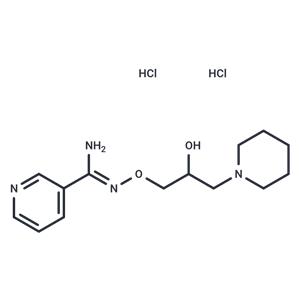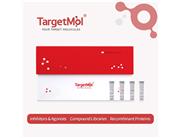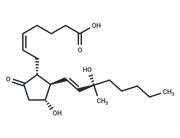| Name | BGP-15 |
| Description | BGP-15 (BGP-15 2HCl) is a PARP inhibitor with protecting effect after ischemia-reperfusion injury. |
| Cell Research | Human tumor cell lines A549, HCT-15, HCT-116, and Du-145 were maintained in RPMI 1640 medium supplemented with 10% FCS in humidified air containing 5% CO2. For in vitro cytotoxicity assays, 5×103 to 5×104 cells were plated into the wells of 96-well plates in 100 μL culture medium. On the following day, cells were exposed to BGP-15 (10, 30, 100 μg/mL) and to a series of concentrations of cisplatin either by itself or in combination. Cultures were incubated in a total volume of 200 μL for 3 more days at 37°. Samples were prepared in duplicates or triplicates. Cell growth was evaluated by MTT or SRB assays. Growth inhibition curves were calculated. (Only for Reference) |
| In vitro | In two mouse models developed to exhibit heart failure and atrial fibrillation, BGP-15 has been shown to enhance cardiac function and reduce arrhythmia [2]. Pretreatment with BGP-15 (100-200 mg/kg, p.o.) before cisplatin administration can either prevent or significantly inhibit the development of cisplatin-induced acute renal failure. BGP-15 demonstrates significant antioxidant effects on the kidneys in the context of cisplatin-induced nephrotoxicity. Despite BGP-15's ability to protect the kidneys from nephrotoxic effects, it does not diminish the antitumor efficacy of cytostatic agents. In the kidneys, BGP-15 inhibits cisplatin-induced poly(ADP-ribose) polymerization [1]. |
| In vivo | BGP-15 acts as an in vitro inducer of HSP72, effective only when co-treated with heat shock, without affecting HSP90 levels. At a concentration of 200 μM, BGP-15 mitigates the depletion of high-energy phosphate compounds and prevents oxidative damage induced by imatinib mesylate. This is achieved by promoting the phosphorylation of Akt and GSK-3beta, and inhibiting the activation of p38 MAPK and JNK, thereby altering the signaling effects of imatinib mesylate. Moreover, BGP-15 significantly inhibits the activation of p38 and JNK, enzymes known to facilitate cell death and inflammatory responses in ex vivo perfused hearts. |
| Storage | Powder: -20°C for 3 years | In solvent: -80°C for 1 year | Shipping with blue ice. |
| Solubility Information | H2O : 64 mg/mL (182.2 mM)
Ethanol : 65 mg/mL (185 mM)
DMSO : 65 mg/mL (185 mM)
|
| Keywords | inhibit | Inhibitor | PARP | BGP 15 | BGP-15 | poly ADP ribose polymerase |
| Inhibitors Related | 4'-Methoxychalcone | Niraparib tosylate monohyrate | VPC-70063 | 3-Aminobenzamide | XAV-939 | Niraparib | 3-Methoxybenzamide | NU1025 | Olaparib | Benzamide | Picolinamide | OUL35 |
| Related Compound Libraries | DNA Damage & Repair Compound Library | Bioactive Compound Library | Anti-Cancer Clinical Compound Library | Drug Repurposing Compound Library | Inhibitor Library | Anti-Aging Compound Library | Clinical Compound Library | Bioactive Compounds Library Max | Anti-Metabolism Disease Compound Library | Anti-Cancer Drug Library |

 United States
United States



